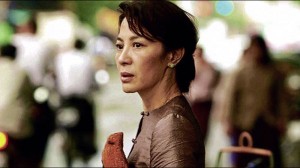Some of the movies shown at the Asia As Our Society Film Festival at Shangri-La last week were rough around the edges. But the Asia Society, which aims to build cultural bridges between Filipinos and their Asian neighbors, deserves to be lauded for exposing local cineastes to a plethora of cultures and issues relevant to the pan-Asian experience.
After all, while movies from Japan, Korea and China are no longer as hard to get hold of as they used to be, how often do we get to watch films from Vietnam, Laos, Indonesia and Sri Lanka? (The Philippines was represented by Mike Sandejas’ “Dinig Sana Kita” and Sheron Dayoc’s Berlin fest-winning “Halaw.”) Here are some notable titles:
Laos’ “Only Love,” by Anousone Sirisackda, highlights its protagonist’s efforts to effect change in his impoverished community by modernizing its obsolete farming methods. But the situation gets dicey for Souvanh (Thanongxay Keoviengsamai) when he’s caught in a messy three-way romance that threatens to derail his well-meant plans—and his intention to win the girl of his dreams (Jilapha Phompukdee).
Salinda Perera’s “Dheevari: Fisherman’s Daughter” is interesting because it chronicles a woman’s (Sangeetha Weeraratne) struggle against Sri Lanka’s feudal practices and prejudices after she is sent home from the orphanage she grew up in. Intriguingly, the film began shooting in 1995, but was only completed in 2006!
Riri Riza’s HK fest winner, “The Rainbow Warriors,” follows a protracted but heart-warming tale about Muslimah (Cut Mini Theo), an idealistic schoolteacher, and her 10 students at a school on a poor Sumatran island in Indonesia. In their poverty-stricken community, getting an education is a luxury. Unfortunately, its best young student has the least chance of finishing school!
Vietnam’s “The Guava House” is a character study of Hoa, a gentle soul in his early 30s, who’s fixated on the family house his father sold when he was a boy.
Our suggestion for the festival’s next edition: “The Lady” is directed by Frenchman Luc Besson. The movie deftly captures Asia’s continuing war against despotic leaders and dictators. It dramatizes the rise to power of 1991 Nobel Peace Prize winner, Aung San Suu Kyi (Michelle Yeoh), as Burma’s poster child for democracy and political reform.
You won’t recognize a gaunt Yeoh, who vanishes into the role—and delivers the best performance of her career! Also check out Junix Inocian in a cameo as a Burmese consular official who refuses to give Suu Kyi’s British husband a visa.



